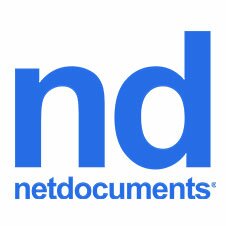Why small law firms need to embrace document management in the cloud according to NetDocuments
The legal sector remains one of the most document-intensive industries today. Yet, many smaller law firms continue to keep huge troves of data onsite, in digital format and as paper copies. It’s expensive and time-consuming to manage, exposes them to security risks, and is a poor fit for today’s hybrid workplace. Clients are increasingly demanding better data management from their legal advisors.
By moving to unified cloud-based document management platforms, smaller law firms can punch above their weight — benefitting from the same kind of seamless digital workflows as their larger counterparts. That’s the way to improve productivity, client service, and business outcomes.
From Paper to the Cloud
Documents play such a foundational role in the typical legal practice that finding faster, more efficient, and more secure ways to manage them can have a huge impact on the bottom line and quality of service. However, a surprising number of small firms are still tied to paper-based processes, which makes it impossible for remote workers to access important documents on the road and represents a serious security risk. Even law firms that have gone digital tend to store their electronic files on-premises.
But what happens when staff want to access, share, work on, and manage these digital documents? Many use features in existing applications to organize their work, such as using email folders in Outlook or Gmail as a quasi-document management system. Unfortunately, these patched-together solutions often come with major downsides and limitations, making document discovery, version control, and collaboration more challenging. Email inboxes can quickly bulge into unmanageable repositories with duplicate messages and documents. There are also compliance risks associated with piecemeal, ad hoc processes like this. The business is bound to suffer in the long run.
One of the most important considerations for how documents are managed is security. In the most recent quarter, the UK’s legal sector reported nearly 500 data breach cyber incidents to the UK’s GDPR regulator, the Information Commissioner’s Office (ICO). The US and Europe are experiencing similar alarming numbers of cyberattacks. Small firms might think cyber criminals are only interested in larger, more lucrative targets. That assumption is wrong. SMBs are increasingly sought out by hackers, who see them as easier targets. They’re attacked outright as a source of lucrative personally identifiable and corporate information, and as ripe candidates for ransomware compromise. And they’re also targeted as a stepping-stone into client networks.
Typically, SMBs are more frequent victims of cyberattacks than large enterprises because they lack the security controls deployed by large firms. That makes it vital that any collaboration tools are fit-for-purpose when it comes to data security, as. there is further risk of a data breach if staff look to non-sanctioned workarounds. This kind of “shadow IT” can result in the use of off-radar tools like personal email and cloud storage, which are even less secure, and are certainly non-compliant.
Set for Success
Faced with these challenges, small law firms need a way to improve efficiency, security, and productivity. In fact, research reveals that 84% of legal professionals expect greater use of technology to improve productivity. But what type of solutions work best?
Firms of all sizes are finding that data management and security applications unified in a centralised platform, with a single user interface, a seamless experience, and high degree of automation are providing the most effective solution. These comprehensive services can shave minutes or even hours off the working day by taking care of repetitive tasks like client intake, document creation, and filing of inbound emails. More importantly, they help staff to be more productive and effective, offering a single source of the truth and the ability to access, share, and work on documents wherever they are.
Legal professionals are also finding that cloud-based solutions deliver better security and availability than on-premises solutions small law firms use. Cloud-based technologies offer better economies of scale, dedicated IT and security staff with the expertise to focus on providing the highest quality of 24/7security monitoring and response, and operations accredited to the highest global standards. It might feel like data is more secure on site, but law firms have far fewer resources to protect and manage their data when compared to mature cloud service providers.
Technology running the in the cloud will also take care of ongoing software updates and infrastructure management, letting customers focus on growing their business. Cloud also means lawyers can access the same set of data from anywhere, enhancing work/life balance and productivity. That’s not only good for the company now, but it will also make it a more attractive place to work when it’s time to hire again. Many modern cloud solutions are also interoperable with third-party solutions, reducing total cost of ownership and adding further value.
Taking advantage of today’s modern cloud data management and security applications will enable smaller law firms to offer the kind of accessible, value-for-money services that clients increasingly expect. With “Tesco Law” opening up the market to new players, only those that can deliver for customers will make the grade. According to analyst Gartner, the top challenge faced by many SMBs when investing in new tech is identifying the right technology for their business. For small law firms, there should be no doubt that cloud-based document management is the way to go.



